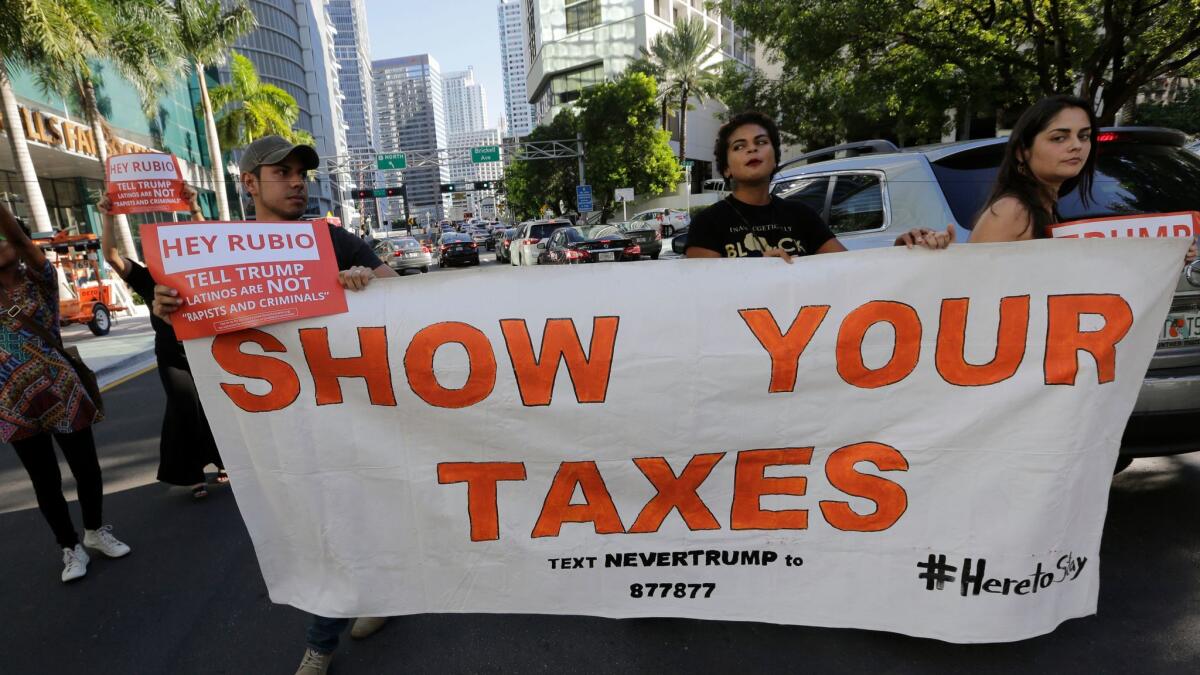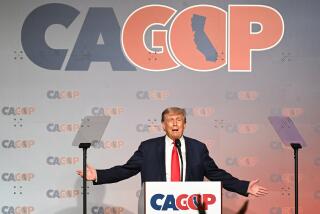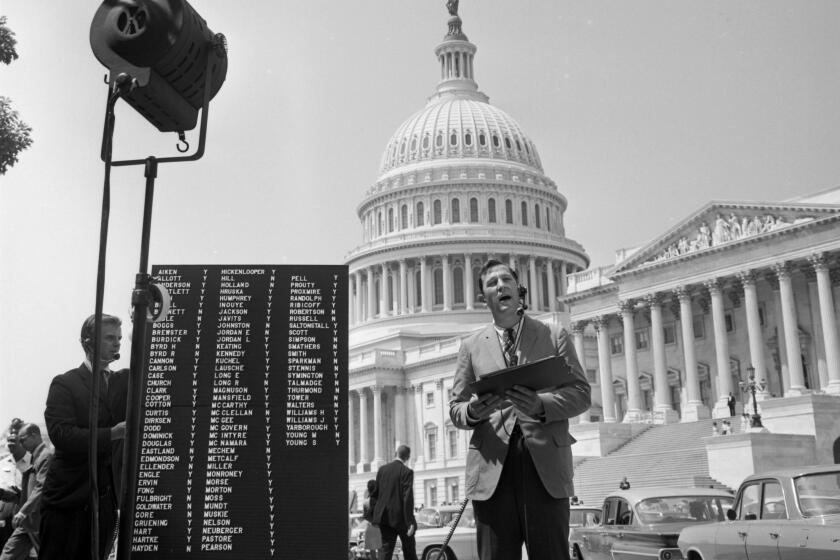Editorial: California’s ongoing fight for Trump’s tax returns is a waste of public resources

U.S. District Court Judge Morrison England Jr. was right to block California’s blatantly partisan new law forcing presidential candidates to release five years of tax returns as a condition of appearing on the state’s primary ballot.
In a written ruling issued Tuesday, England said that the “Presidential Tax Transparency and Accountability Act” is unconstitutional in several ways. It violates the presidential qualifications clause and the equal protection clause of the U.S. Constitution, and it deprives voters of their First Amendment right to associate with and vote for the candidates of their choice, among other shortcomings. Furthermore, England noted that the argument on which the law was predicated — that presidential candidates have been releasing their returns routinely for five decades — is disingenuous, given that several of them have chosen not to do so. That includes former California Gov. Jerry Brown when he sought the Democratic nomination in 1992 and Green Party candidate Ralph Nader in 2000.
For now, at least, the law is dead. It would be best for it to remain so. This is one Trump-inspired law that California’s lawmakers should not have passed.
Certainly, it was an affront to the voters that then-candidate Donald Trump bucked the tradition of presidential candidates releasing their tax returns. But it was up to voters to punish him for the omission, and they didn’t.
This law was conceived by legislative Democrats still reeling from the disappointing outcome of the 2016 election. How likely is it that such a law would have been proposed, let alone passed, if Hillary Clinton had ended up winning? Brown vetoed the Legislature’s attempt in 2017 to demand candidates’ tax returns, soberly pointing out the troubling precedent that might be set if partisan state lawmakers were allowed to apply new requirements for getting on the ballot. But the bill was revived when Brown left, and Gov. Gavin Newsom signed it enthusiastically in July.
California Secretary of State Alex Padilla said shortly after Tuesday’s ruling that he would appeal England’s decision, a move supported by Newsom. But for what purpose? Besides, it would be difficult for a higher court to decide the case, which involved five separate lawsuits and multiple overlapping arguments, before the Nov. 26 deadline the law set for determining who qualifies for the 2020 ballot. If the requirement isn’t in place in time to force Trump’s hand in 2020, will anyone care by 2024?
Despite what lawmakers are saying about protecting democracy, this law was all about punishing Trump, just as a 2011 proposal in Arizona to require birth certificates to be included on the state’s primary ballots was aimed at President Obama. Arizona’s Republican Gov. Jan Brewer wisely stood up to her party’s overt partisanship and vetoed it.
But this law doesn’t stick it just to candidates like Trump who for whatever reason don’t want to show the public their tax returns, it punishes the 4.7 million Californians who are registered Republican voters as well. Since Trump will most likely continue to ignore calls to release his returns, his name would not appear on the March primary ballot, thus depriving Republicans from showing their support for or opposition to the incumbent. Nor will it have any bearing on Trump’s chances for reelection, since the law does not apply to the general election.
To be clear, we aren’t endorsing Trump’s decision to keep his tax returns secret. Of course we want to see the returns of every presidential candidate, including those of the incumbent. Trump’s failure to do so only serves to reinforce suspicions about his conflicts of interest. We also want candidates to be transparent about their dealings and honest about their intentions, but would not support primary ballots being designed to punish those who aren’t. That’s a job for voters.
We hope that state officials will eventually see the folly of spending their time and the public’s resources fighting this indefensible law. (Losers in appeals can be required to pay legal fees for the winners, as well as their own costs.) The Founders set few requirements on presidential candidates, leaving it up to voters to apply their own standards on candidates within the historical and cultural context of each election. And that’s the way it should remain.
More to Read
A cure for the common opinion
Get thought-provoking perspectives with our weekly newsletter.
You may occasionally receive promotional content from the Los Angeles Times.






